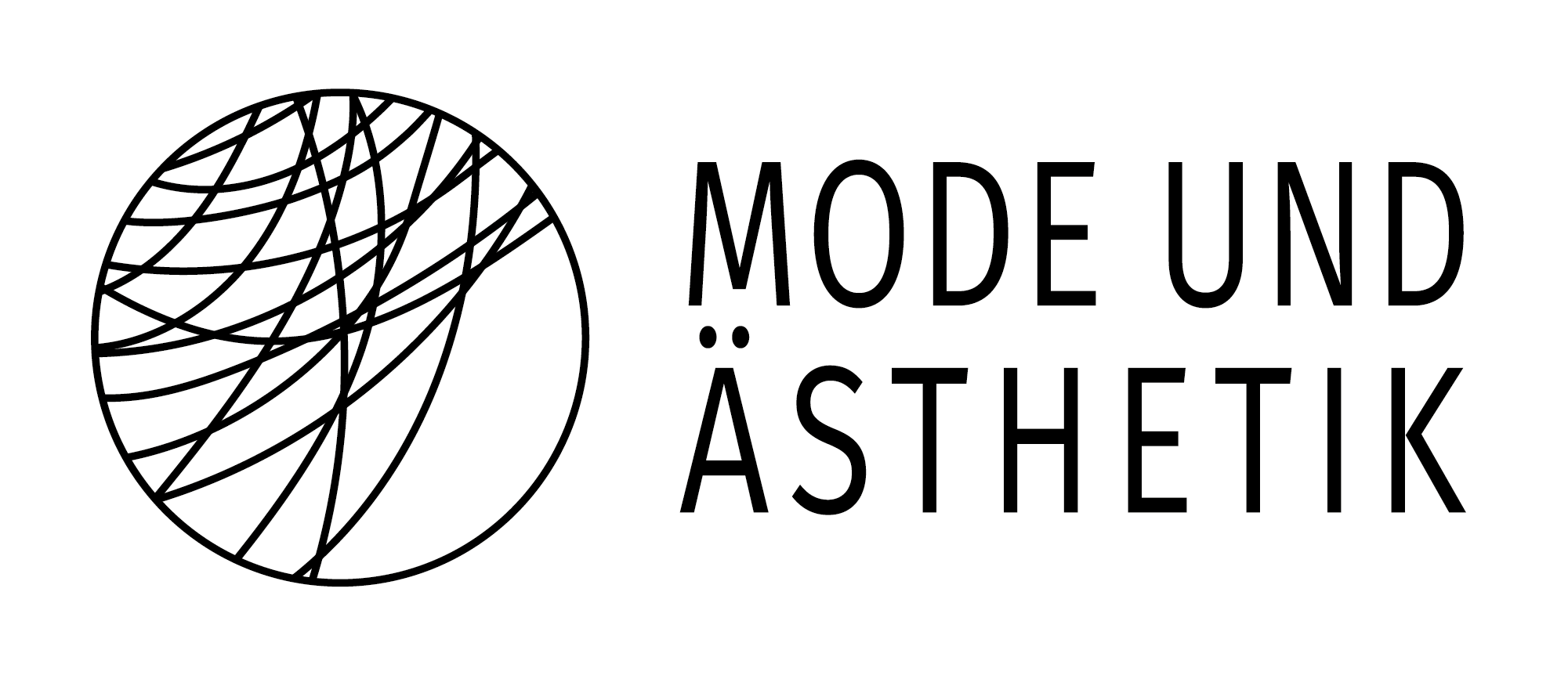Consultation Hour
Please register here for an appointment.
The consultation hour will then take place in this zoom meeting.
Research interests
Postcolonial theory and gender studies of the 19th to 21st century in the history of art and cultural studies. Interconnections of art and popular culture. Alterity discourses and construction processes and their visualisation, incorporation and interpretation in contemporary art. Art history in a global context, transculturality.
Rhea Dehn Tutosaus, M.A., is a doctoral candidate in art history and research associate at the Fashion & Aesthetics section at the Technical University of Darmstadt. In 2021, she was awarded the Prize for Innovative Research at the TU Darmstadt for her doctoral project. Under the working title “Cross-Border Connections: Aesthetics of the body, movement and border experiences in contemporary art”, she investigates how the Spanish-Moroccan border at the Strait of Gibraltar is represented in art and visual culture. The starting point is the premise that borders can serve as spaces for innovative artistic production, in which artists historically and currently address border-related issues. Considering post- and decolonial studies, the intersection of borders and bodies is examined in aesthetic practice.
She studied art history and Romance languages and literature at Goethe University Frankfurt am Main and at the Universtitat de Barcelona (Spain). In her Master’s thesis "Umdeutungen des Schleiers. Repräsentationspolitiken bei Lalla Essaydi, Majida Khattari und Yumna Al-Arashi (2019)” (Reinterpreting the Veil. Politics of Representation by Lalla Essaydi, Majida Khattari and Yumna Al-Arashi), she examined the artistic areas of action in a Western influenced ‘discourse about the Orient’. She was student trainee in the curatorial section of the Museum Angewandte Kunst in Frankfurt am Main (2019), during which time she actively followed the Contemporary Muslim Fashions exhibition and presented a panel about fashion and art during the Contemporary Muslim Fashions Forum.
Since the 1990s, media coverage mainly favouring conservative politics have taken root based on pictures and recordings showing migrants and the inhumane conditions of their travels across the Mediterranean Sea. At the same time, the documentary genre became highly important in art productions unveiling areas marked as problematic by society (Nail 2019: 61). History, equally influenced by exchange and conflict, the particular geographic constellation arising from the Straits of Gibraltar, and last but not least the exemplary European border regime set up with the Schengen agreement (1991) contribute to the complexities of the Spanish-Moroccan borders as a field of research.
The concept of this border will be analysed as a productive space to ask how artists adopt, explore, interpret and view this border. Video recordings about the Spanish-Moroccan border are put in focus: The film “Le rêve des brûleurs” (2002) by Leila Kilani, the video essay “Europlex” (2003) by Ursula Biemann, “La Contrebandière” (2006) by Yto Barrada, “Walls” (2006) by Rogelio Lopez Cuencas, “On Translation: Miedo/Jauf” (2007) by Antoni Muntadas, “The Mapping Journey Project” (2008-2011) by Bouchra Khalili, the work “No More Beyond” (2017) by Matthias Kispert and the film “Bab Septa” (2019) by Randa Maroufi. This film should not be reduced to the aesthetics of an artistic medium, but should be understood as a means of social debate, social behaviour and the reinterpretation of political discourse. This convolution results in the question: How does media-based art address, reflect and interpret the combination of geography, globalisation and migration specifically using the Moroccan-Spanish border as an example? Which role does art play both in the production and its reception in the context of conservative politics? Which new approaches and perspectives is art able to provide in response? To which extend can art works offer a platform for alternative imagery production or do they reproduce and set the voyeuristic and social-deterministic dimension of the documentary?
In this project, the changing concept of border and its visualisation are formulated based on the works stated above. In the course of this, the perception of border as a clearly defined line of power, justification and stabiliser of relationships of power, as a third space (Bhabha 2000), as a form of government and as an area of control and surveillance coexist, that is characterised by migrants and their border-crossing movements (Schimanski and Wolfe 2017) The performative character of thinking outside of the box provides the starting point or point of reflection to question established dualities in society. This does not only release the artificial constructs of border but also the figurative representation of migrants from a postmigration perspective of the static characteristics attributed to them and redefines, reunderstands and reflects them through mobility (Drogramaci 2019: 10). Art is often an unfairly ignored but extremely productive platform for addressing and discussing socio-political topics, as becomes particularly evident in documentary media-based art. By combining borders and migration, seen as opposites of stillness and mobility, pictures in motion in an artistic production offer an excellent platform for reflection, insight and expression.
In 2021, the sponsorship award of the Department of Human Sciences for a highly innovative research project goes to Rhea Dehn Tutosaus for her PhD project: "Cross-border Connections at the Estrecho de Gibraltar: Aesthetics of Bodies, Movements and Border Experiences in Contemporary Art”.
| In/Visibilities and Agency – Artistic Practices in the Context of Migration, co-edited with Alexandra Karentzos and Miriam Oesterreich, forthcoming. |
| Visualising Border Experiences Through Participatory Filmmaking at the Moroccan–Spanish Border, in: Kehinde Christopher Adewumi, Folasayo Enoch Olalere, Gambo Giles Duniya (Ed): Camera in Times of Crisis: Focus on Africa, Emerald Publishing Limited, 2025, 79-97. |
| Traumatic Monuments: Decolonial Iconoclasms and ‘Southern’ Memories (together with Miriam Oesterreich), in: Tomas Macsotay, Nausikaä El-Mecky (Ed), Toppling Things as Memorial Contestation: Spectacle and Affect of Monument Removal, Series Thamyris-Intersecting: Place, Sex and Race, Leiden: Brill, 12/2024. |
| Crossing the Border of Bab Sebta: Body-territory and Knowledge Production in Randa Maroufi's Artistic Practice, in: María Bendito and Anna María Guasch (Ed): Repensar Babel. Desafíos del mundo plural. Revista de Estudios Globales y Arte Contemporáneo, 12/2023. |
| Declinación Magnética – Margen de Error (¿Cómo se escribe occidental?), in: Miriam Oesterreich und Franziska Koch (Ed): Miradas 7: Dekoloniale Theorie, Transkulturation und lateinamerikanische Positionen – Verwobene Kunstgeschichten / Teoría decolonial, transculturación, posiciones Latino-Americanas – Entretejiendo historias del arte, 06/2023. |
| This is what a Feminist looks like – in Frankfurt (with Zahira Dehn Tutosaus), in: IX Edición de Mujeres Mirando Mujeres. Arte y Feminismo, 03/2023. |
| Two sides of the same sea. Borders and Border Crossings in Contemprary Video Art (with Zahria Dehn Tutosaus), in: Babara Schellhammer and Lena Schützle (Ed): Philosophy of the Border, wbg Academic, 8/2022. |
| Towards a self-empowered female body. Body language, tactility and materiality in Contemporary Art, in: Viola Thimm (Ed): (Re-)Claiming Bodies through Fashion and Style: Gendered Configurations in Muslim Contexts, Basingstoke: Palgrave Macmillan, 08/2021. |
| Majida Khattari. El cuerpo femenino como campo de batalla (with Zahira Dehn Tutosaus), in: VII Edición de Mujeres Mirando Mujeres. Arte y Feminismo, 03/2021 |
| Reseña Leonie Schuster: Brazilian flights of fancy: aviation pioneers and imaginations of nation and world in Brazil, 1900-1922, in: Miradas, 10/2020. |
| Figures: More than just the human form at Frankfurt gallery Sakhile&Me, in: The Article, 08/2020. |
| Yumna Al-Arashi | El poder del cuerpo femenino (with Zahira Dehn Tutosaus), in: VI Edición de Mujeres Mirando Mujeres. Arte y Feminismo, 06/2020. |
| The veil: the nexus between art and fashion, in: exhibition cat. Contemporary Muslim Fashion, Museum of Applied Arts, 04/2019. |
| “Wie entsteht eine wissenschaftliche Arbeit? Von der Idee zur humanwissenschaftlichen Fragestellung”, lecture within the framework of the lecture series “Lern- und Arbeitstechniken“ by Prof. Dr. André Seyfarth, Technische Universität Darmstadt, 11/2024 |
| "Cross-Border Bodies: Reflections on the Materiality of Smuggling Bodies at Bab Sebta“, presentation at the 36th congres du Comite International d'Histoire de l’Art (CIHA), Lyon, 06/2024 |
| “Participatory Filmmaking at the Moroccan-Spanish Border. A Conversation between Irene Gutierrez Torres and Rhea Dehn Tutosaus“, presentation at the conference IMISCOE International Migration Research Network, Universität Warschau, 07/2023 |
| “Migration im Friseurhandwerk“ Opening lecture at the symposium of the 22nd Hochschultage für Berufliche Bildung 2023 „Securing skilled workers – future-oriented qualification, social participation and integration through vocational education and training“, University of Bamberg, together with Alexandra Karentzos and Sylvia Weyrauch, 03/2023 |
| “GrenzChoreographien. Das ‚Gehen‘ über die Grenze als subversive Strategie in Randa Maroufis Bab Sebta”, presentation as part of the lecture series at the Institute of Art History, Universität des Saarlandes, 02/2023 |
| “#Feminismus, oder wie war nochmal die Frage?”, lecture within the framework of the lecture series „Lern- und Arbeitstechniken“ von Prof. Dr. André Seyfarth, Technische Universität Darmstadt, 01/2023 |
| “The Strait of Gibraltar as a Border(land)scape: New Ways of Seeing and Knowing through Contemporary Art”, presentation at the conference “(Re)thinking Landscape: Ways of Knowing / Ways of Being”, Yale University, New Haven, CT, 09/2022 |
| “Traumatic Monuments—Decolonial Iconoclasms and 'Southern' Memories”, presentation at the conference „Monuments & Mobilty“, Goethe-Universität Frankfurt, 07/2022 |
| “Layers of Matter: Bodies, Goods, Textiles as Border Experiences”, presentation at the conference “Border Renaissance. Recent Developments in Territorial, Cultural, and Linguistic Border Studies”, UniGR-Center for Border Studies, Universität des Saarlandes, 02/2022 |
| “(Un-)Sichtbar Werden: Körper, Waren, Textilien als Grenzerfahrungen“, Workshop „Sichtbarkeitspolitiken von Migration“ Workshop des DGF Netzwerks Entangled Histories of Art and Migration: Forms, Visibilities, Agents, Technische Universität Darmstadt, 02/2022 |
| “Atravesando fronteras: Movimientos y gestos en el arte contemporáneo de Bab Sebta”, presentation at the conference “(Des)Escribindo a Fronteira: Identidades Liminais Humanas e Non-Humanas”, Universidade de Vigo & Universidade de Santiago de Compostela, 01/2022 |
| “Artist talk with Irene Gutiérrez Torres” in the context of the Apéro-Talk series „Borders. Borders and Border Regions in Contemporary Art Production and Art Theory", Research group Art Production and Art Theory in the Era of Global Migration (Ulmer Verein), 01/2022 |
| “Layer by Layer: Der weibliche Körper als Bordertextur”, presentation at “Atelier Bordertexturen“, UniGR – Europäisches Zentrum für Grenzraumforschung, Universität des Saarlandes, 12/2021 |
| “Hacerse (in)visible: Cuerpos, Mercancías y Textiles como Experiencias Fronterizas”, lecture at the International Symposium “New Babel. Challenges of the Plural World”, University of Barcelona, 11/2021 |
| “Decolonizing Monuments. Critical Reflections on Aesthetics and Memory in a Post/colonial Context”, introduction to the international lecture series at the TU Darmstadt, with Alexandra Karentzos und Miriam Oesterreich (online event), 05/2021 |
| “Decolonizing Monuments: Aesthetics of Social Resistance and the Post/Colonial Urban Space” (with Miriam Oesterreich), presentation at the conference “Art and the City: Urban Space, Art and Social Change”, Aarhus University, 04/2021 |
| “Everyday Negotiations of Body and Space in Randa Maroufi’s Film Bab Sebta”, Vortrag im Rahmen der Konferenz “Time and the Body in Film, Television and Screen Studies” Centre for International Film Research, University of Southampton, 04/2021 |
| “Mode, Kunst und Repräsentation“ (together with Tasnim Baghdadi and Isra Abdou), Contemporary Muslim Fashions Forum, Museum Angewandte Kunst, Frankfurt am Main, 04/2019 |





